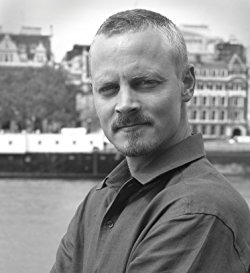Why the difference between 'doing' agile and 'being' agile is so critical
- 5 Min Read
Every organisation wants to be more agile, and many have introduced agile development processes into their technology teams as a way of empowering faster and more regular delivery of working software and value. Yet the opportunity that agile brings to organisations should not be limited to the tech team. Agile principles and practices offer the […]
- Author: Neil Perkin
- Date published: May 17, 2017
- Categories

Every organisation wants to be more agile, and many have introduced agile development processes into their technology teams as a way of empowering faster and more regular delivery of working software and value. Yet the opportunity that agile brings to organisations should not be limited to the tech team. Agile principles and practices offer the opportunity to apply thinking and approaches that can support the kind of responsiveness and manoeuvrability that is far more important in the face of rapidly changing competitive, consumer, and company contexts.
The original Agile Manifesto (written as long ago as 2001 but still online at agilemanifesto.org) featured four over-arching principles, stating that whilst there is value in the items on the right, the items on the left should be valued more:
- Individuals and interactions over processes and tools
- Working software over comprehensive documentation
- Customer collaboration over contract negotiation
- Responding to change over following a plan
One of the questions that often comes up when introducing or scaling agile methodologies and thinking across organisations is when are agile, iterative processes appropriate and conversely when are they not? It’s one of the most common questions that arises in the workshops on organisational agility that I run with senior leadership teams.
My belief is that in general, many of the principles that surround agile (like data-driven decision making, regular delivery of value, customer-focus, continuous learning, adaptability) are undervalued in business and should be more broadly applied in an environment of rapidly changing competitive, consumer and company contexts. But the wider point is that agile is not just a process, it defines a culture. This is what agile practitioner Michael Sahota (in his short book ‘An Agile Adoption and Transformation Survival Guide) describes as the difference between doing agile and being agile. It’s the difference between practices and mindset. And as Michael points out, being agile should not be an isolated goal — it needs to run alongside other objectives that give direction.
An agile mindset and culture can be a powerful enabler to progress, but it’s about progressing towards defined organisational goals in an agile way. In my experience this is a significant mindset change for leaders schooled in more structured, waterfall-like, processes and thinking, operating in an environment characterised by embedded organisational practice, routines and conventions that are far from agile.
But what of agile as a process? Whilst doing agile (and more generally iterative, sprint working) is, I think, also undervalued and overly confined in most businesses, it is not applicable to absolutely everything. Researcher Simon Wardley describes how multiple methods of development and value creation are required within a company, appropriate for different evolutionary stages of a value proposition or components to a system. Such components can mature from the new and uncharted (characterised by discovery, higher levels of unpredictability, uncertainty, and potential differential), to the more common and industrialised (more certain and predictable, appearance of linear order). Agile is naturally suited to charting new territory and building new value in an environment of rapid change since it is far more adaptive. More industrialised, well-established and well-understood components that are highly stable and repeatable are more effectively managed by a highly-structured method (like six-sigma for example).
It makes sense that different methodologies are appropriate for different contexts. My point to many leadership teams though, is that in the context of a modern operating environment that is characterised by heightened levels of change and uncertainty, we need far greater emphasis on emergent strategy, experimentation and adaptive, iterative, agile ways of working. Put simply, we need to completely reset the balance and scale agile thinking and approaches far wider across the organization. This is about far more than simply establishing a better way to build software.
For more on the ‘how’ of digital transformation, and to understand how to ensure your organization is fit-for-purpose for the digital-empwored world, read Neil’s book, Building the Agile Business Through Digital Transformation (Kogan Page, April 2017).
Neil Perkin:
Neil is a renowned blogger, writer and the founder of Only Dead Fish, a digital and media consultancy that specialises in applying strategic understanding of digital and emerging media technologies to help businesses optimise their effectiveness within the new, networked communications environment.
Neil is the author of the upcoming book on organisational agility and digital transformation, ‘Building The Agile Business’ (Kogan Page, April 2017). He is a regular keynote speaker across Europe on digital transformation and digital strategy, and has been named by BIMA (British Interactive Media Association) as one of the most influential people in the UK digital industry for two years in a row. He curates the global quarterly series of Firestarters thought leadership events on behalf of Google, is a keynote speaker on the Google Squared programme and has worked with market-leading global businesses including The Financial Times, BBC, Warner Bros, the UK Government, Unilever and YouTube. He is an associate of The Futures Agency, a collaboration of some of the world’s leading forward thinkers and futurists, and is also the co-founder of the Fraggl Twitter curation app.









